A resistance of Rω draws current from a potentiometer. The potentio - meter has a total resistance R0Ω (Fig). A voltage V is supplied to the potentiometer.
Derive an expression for the voltage across R when the sliding contact is in the middle of the potentiometer.
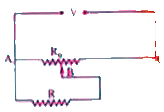
While the slide is in the middle of the potentiometer only half of its resistance (R0/2) will be between the points A and B.
Hence, the total resistance between A and B, say, R1, will be given by the following expression :
1R1=1R+1(R0/2)⇒R1=R0RR0+2R
The total resistance between A and C will be sum of resistance between A and B and B and C,
i.e., R1+R0/2
∴ The current flowing through the potentiometer will be
I=VR1+R0/2=2V2R1+R0
The voltage V1 taken from the potentiometer will be the p roduct of current I and resistance R1,
_(1)=IR2=(2V2R1+R0)×R1
Substituting for R1, we have a
V1=2V2(R0×RR0+2R)+R0×R0×RR0+2R
V1=2VR2R+R0+2RorV1=2VRR0+4R
Topper's Solved these Questions
- CURRENT ELECTRICITYBOOK - AAKASH SERIESCHAPTER - CURRENT ELECTRICITYEXERCISE - EXERCISE - IA
101 Videos
- CURRENT ELECTRICITYBOOK - AAKASH SERIESCHAPTER - CURRENT ELECTRICITYEXERCISE - EXERCISE - IB
44 Videos
- CURRENT ELECTRICITYBOOK - AAKASH SERIESCHAPTER - CURRENT ELECTRICITYEXERCISE - ADDITIONAL PRACTICE EXERCISE (LEVEL -II PRACTICE SHEET (ADVANCED) (More than One correct answer Type Questions))
2 Videos
- CURRENT ELECTRICITYBOOK - AAKASH SERIESCHAPTER - CURRENT ELECTRICITYEXERCISE - PROBLEMS (LEVEL-II)
26 Videos
- DUAL NATURE OF RADIATION AND MATTERBOOK - AAKASH SERIESCHAPTER - DUAL NATURE OF RADIATION AND MATTEREXERCISE - PRACTICE EXERCISEX
44 Videos
Similar Questions
A resistance of RΩ draws current from a potentiometer as shown in Fig. The potentiometer has a total resistance R0Ω. A voltage Vis supplied to the potentiometer. Derive an expression for the voltage across R when the sliding contact is in the middle of the potentiometer.

View SolutionA resistance of R draws current from a potentiometer. The potentiometer wire, AB , has a total resistance of R0, A voltage V is supplied to the potentiometer. Derive an expression for the voltage across R when the sliding contact is in the middle of potentialmeter wire.
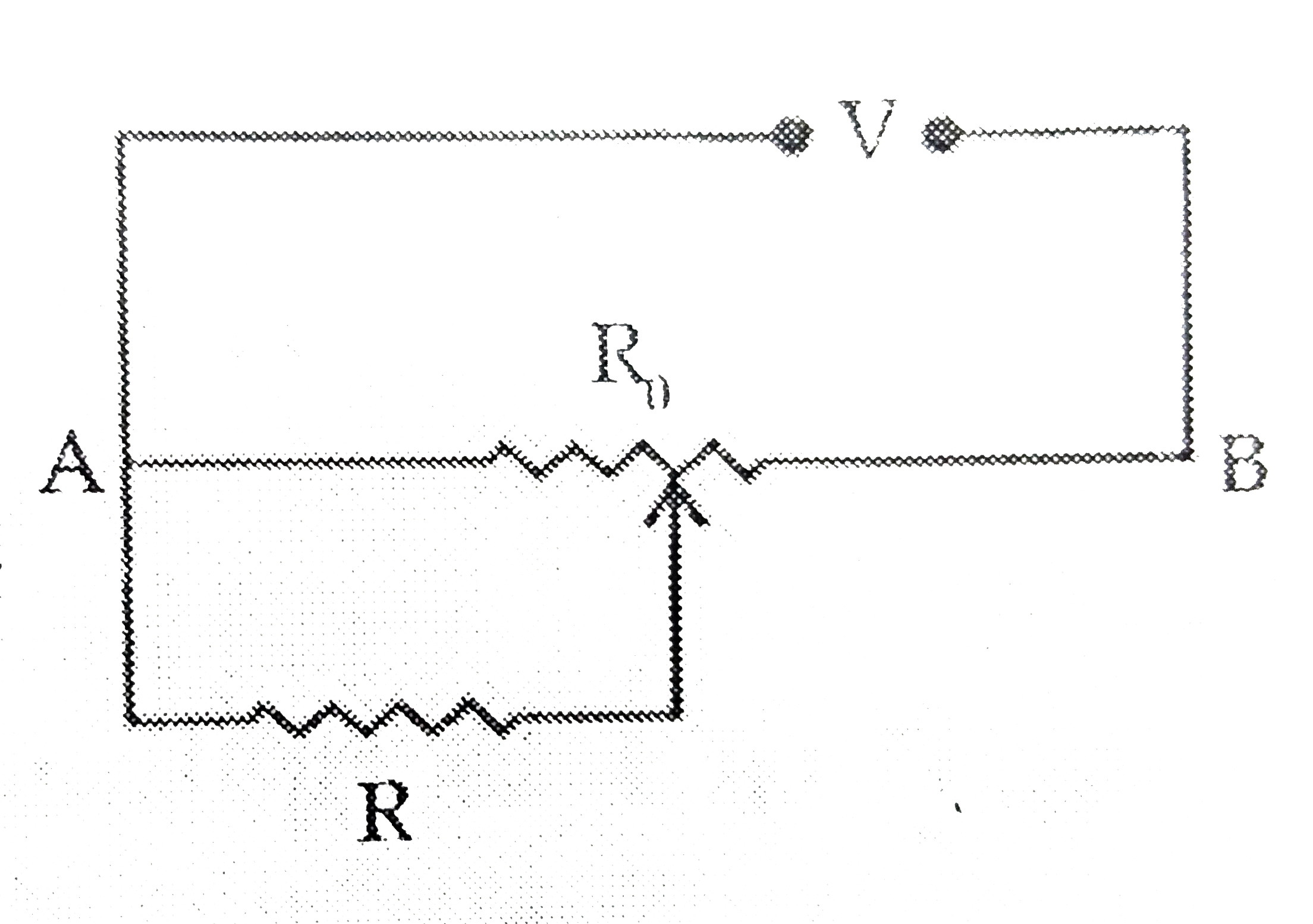
View SolutionA resistance of R draw current from a potentiometer. The potentiometer wire, AB, has total resistance of R0. A voltage V is supplied to the potentiometer. Derive an expression for the voltage across R when the sliding contact is in the middle of potentiometer wire.
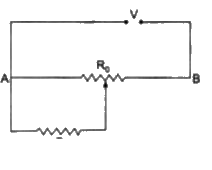
View SolutionThe given potentiometer has its wire of resistance 10Ω When the sliding contact is in the middle of the potentiometer wire, the potential drop across 2Ω resistor is :
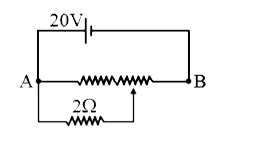
View SolutionA constant voltage of 3 V is supplied to a potentiometer wire. A cell of emf 2 V is balanced by a voltage drop across 416 cm of the wire. Find the total length of the potentiometer wire.
View SolutionA current of 1.0 mA is flowing through a potentiometer wire of length 4 m and of resistance 4Ω, find the potential gradient of potentiometer wire
View SolutionThe weight of an object on the surface of the Earth is 40 N. Its weight at a height equal to the radius of the Earth is
View Solution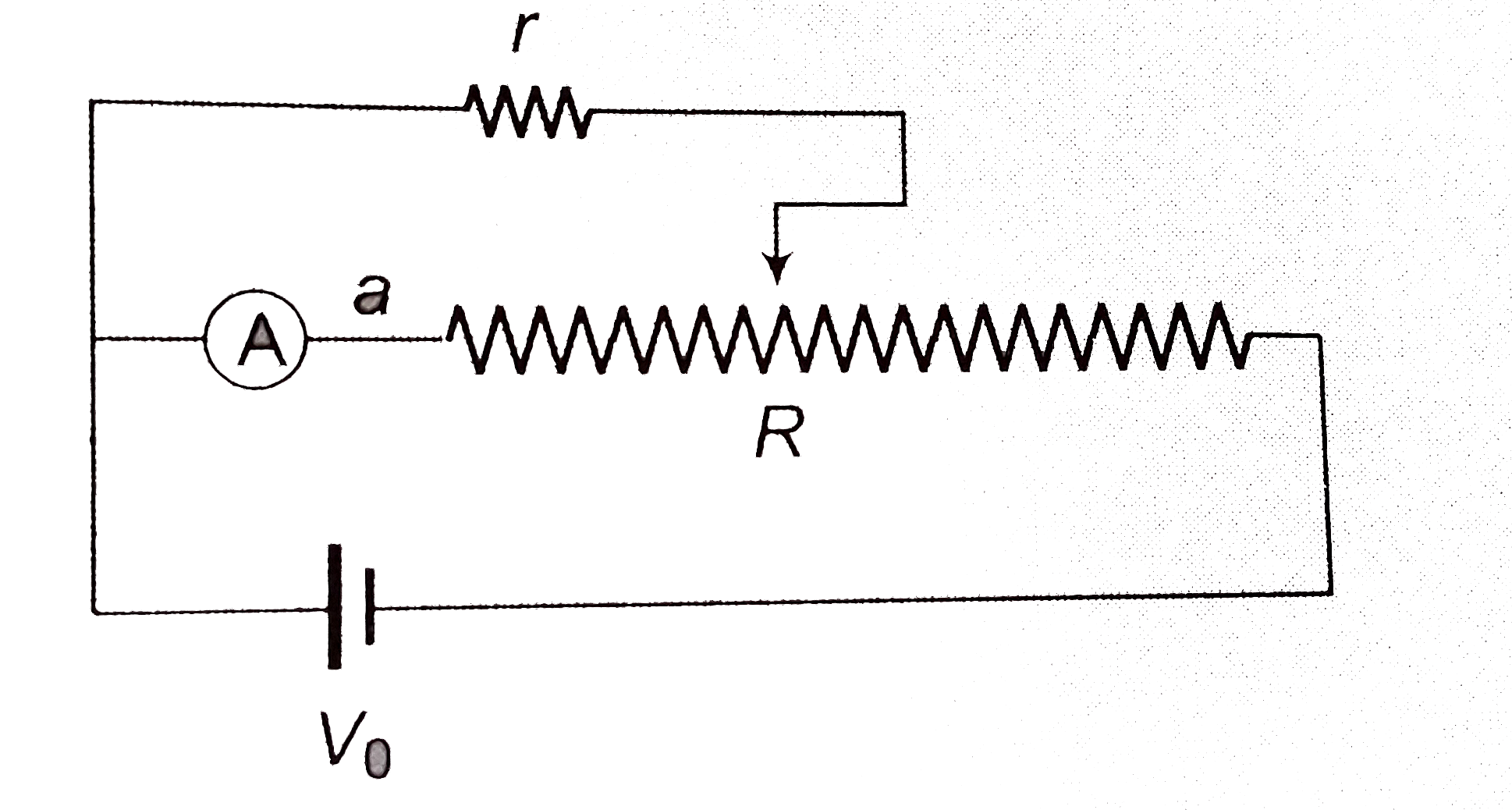
A constant voltage V0 is applied to a potentiometer of resistance R connected to an ammeter. A constant resistor r is connected to the sliding contact of the potentiometer and the fixed end of the potentiometer. How will the reading of ammeter vary as the sliding contact is moved from one end of the potentiometer to the other ? The resistance of ammeter is assumed to be negligible.
View SolutionA potentiometer wires has a length L and a resistance R0. It is connected to a battery and a parallel resistance combination of R and S as shown in fogure. Find an exprssion for the potential gradient of the potentiometer wire.
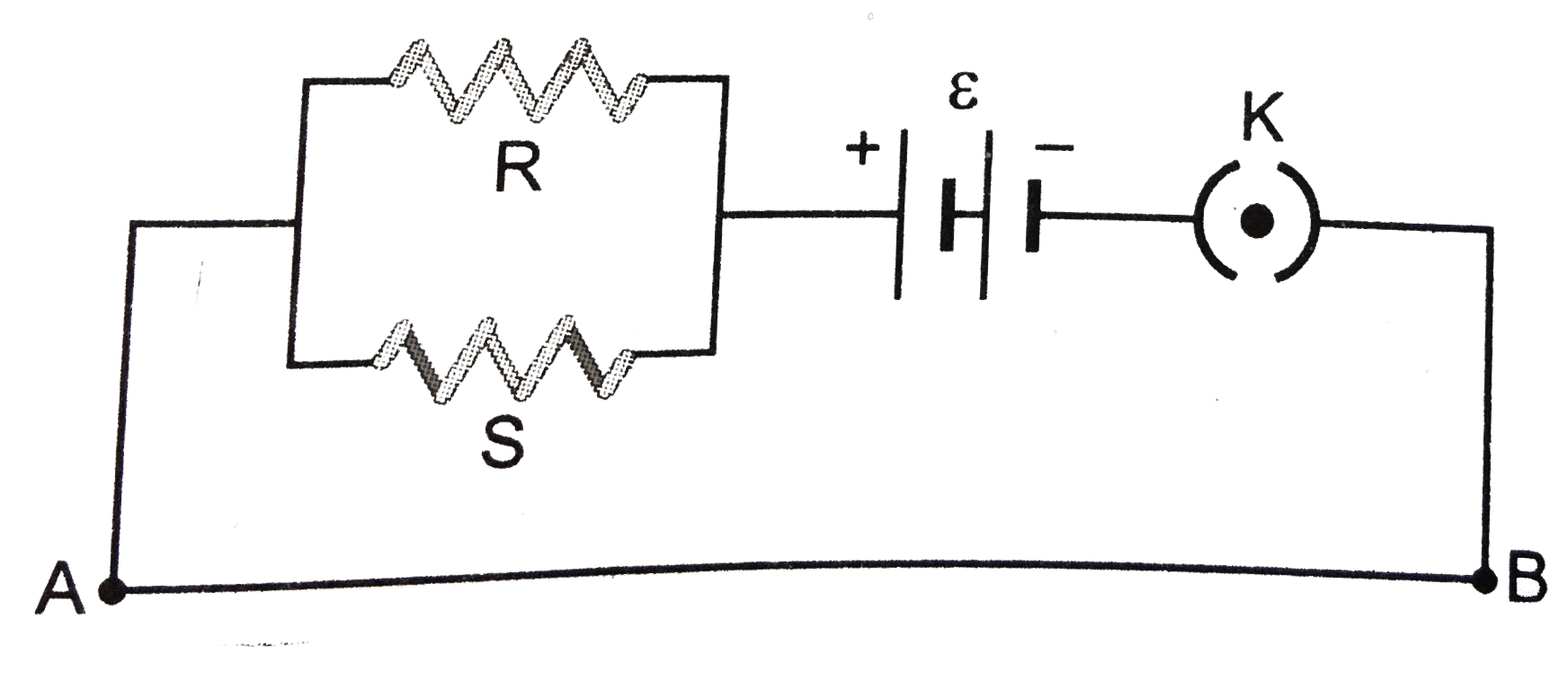
View SolutionFig. illustrates a potentiometric circuit by means of which we can very a voltage V applied to a certain device possessing a resistance R. The potentiometer has a length l and a resistance R0 and voltage V0 is applied to its terminals. Find the voltage V fed to the device as a funciton of distanace x. Analyse separately the case R>>R0.

View Solution
